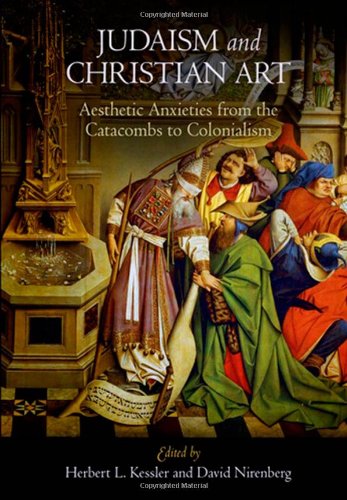

Most ebook files are in PDF format, so you can easily read them using various software such as Foxit Reader or directly on the Google Chrome browser.
Some ebook files are released by publishers in other formats such as .awz, .mobi, .epub, .fb2, etc. You may need to install specific software to read these formats on mobile/PC, such as Calibre.
Please read the tutorial at this link: https://ebookbell.com/faq
We offer FREE conversion to the popular formats you request; however, this may take some time. Therefore, right after payment, please email us, and we will try to provide the service as quickly as possible.
For some exceptional file formats or broken links (if any), please refrain from opening any disputes. Instead, email us first, and we will try to assist within a maximum of 6 hours.
EbookBell Team

4.7
16 reviewsChristian cultures across the centuries have invoked Judaism in order to debate, represent, and contain the dangers presented by the sensual nature of art. By engaging Judaism, both real and imagined, they explored and expanded the perils and possibilities for Christian representation of the material world.
The thirteen essays in Judaism and Christian Art reveal that Christian art has always defined itself through the figures of Judaism that it produces. From its beginnings, Christianity confronted a host of questions about visual representation. Should Christians make art, or does attention to the beautiful works of human hands constitute a misplaced emphasis on the things of this world or, worse, a form of idolatry ("Thou shalt make no graven image")? And if art is allowed, upon what styles, motifs, and symbols should it draw? Christian artists, theologians, and philosophers answered these questions and many others by thinking about and representing the relationship of Christianity to Judaism. This volume is the first dedicated to the long history, from the catacombs to colonialism but with special emphasis on the Middle Ages and the Renaissance, of the ways in which Christian art deployed cohorts of "Jews"—more figurative than real—in order to conquer, defend, and explore its own territory.